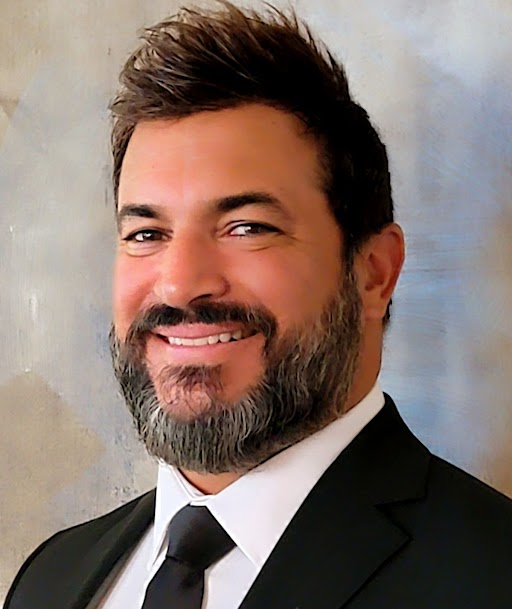If you’re considering ditching traditional health insurance, health care cost sharing could be just what you need.
These adaptable and cost-effective programs provide you a safeguard against unforeseen medical expenses without navigating the complexities and inflated costs often associated with conventional insurance.

And it’s not just about the financial benefits. By joining a health care cost sharing program, you’re also tapping into a supportive community where everyone looks out for each other.
Among the array of healthshare plans available, Medi-Share stands out as one of the most widely embraced programs. In this blog, we aim to address common inquiries about Medi-Share through a comprehensive FAQ guide, to equip you with the necessary knowledge to embark on your health sharing journey.
Medi-Share FAQ
Q: What is Medi-Share?
A: Medi-Share is what’s known as a Health Care Sharing Ministry, or an HCSM.
For several decades, HCSMs have made it possible for Americans to share the cost of medical care with like minded individuals. Not only is this a simpler, kinder way to pay for health care, but it’s actually about half the cost of unsubsidized insurance.
Medi-Share is a Christian health sharing program, sometimes called “Christian health insurance.” As a result, there are some Biblically-based membership qualifications that members have to meet. This includes maintaining an active relationship with a church, and not engaging in sex outside Biblical marriage.
While most HCSMs are based in the Christian faith, newer health sharing programs like the HSA Secure are open to almost anyone.
Q: How much does Medi-Share cost?
A: The cost of Medi-Share varies depending on your age and location, as well as the number of family members you might be enrolling.
Typically, individuals can find Medi-Share plans as low as $130 per month. Families of four can pay as little as $350 per month. Like regular health insurance plans, your actual monthly cost will also depend on your program options.
Q: Is Medi-Share “Christian health insurance”?
A: While it is sometimes referred to as “Christian health insurance”, health sharing plans are not health insurance.
Health sharing is an alternative form of health protection, legal in the United States, that allows members of a specific community to share the cost of health expenses.
Q: Which doctors accept Medi-Share?
A: Medi-Share uses a Preferred Provider Organization (PPO) called PHCS.
This means that members can choose from a network of over 4,400 hospitals, 79,000 ancillary care facilities, and 700,000 individual healthcare professionals nationwide.
Your Personal Benefits Manager can help you find out whether your favorite or current doctor accepts Medi-Share.
Compare Pricing on the Best HealthShare Plans Available
Q: Who manages the pharmacy benefit for Medi-Share and is there a prescription formulary?
A:The pharmacy benefit for Medi-Share is managed by Navitus Health Solutions, GoodRx, and Kroger.
They handle all the necessary processes and procedures related to pharmacy services. The Medishare program also works with Walgreens and Walmart.
Q: What counts as a covered medical expense for members?
A:When members have medical expenses, a covered claim means a bill that can be shared among other members in the group.
Instead of dealing with claims like insurance companies do, Medi-Share has a different process. When a member gets medical care, they show their ID card to the provider. If the service provider is in the Preferred Provider Organization (PPO) network, they might lower the bill.
Then, the bill is reviewed to see if it meets Medi-Share’s sharing criteria. Once a member has met their Annual Household Portion (AHP), and if the bill qualifies, it can be shared among the group. It’s important to know that Medi-Share doesnt pay the bill from their own pocket ; members contribute to cover these expenses directly.
Q: How does Medi-Share pay providers who aren’t in their network?
A:Medi-Share mainly works with Preferred Provider Organizations (PPOs).
When members use a PPO provider, they show their ID card for a discount. The provider sends the discounted bill to Medi-Share.
If a member goes to a provider outside the PPO network, they should still inform the provider about Medi-Share and show their ID card.
Even if a provider isn’t in the network, Medi-Share will check if the bill can be shared among members. They negotiate discounts with providers for all bills, whether in the network or not. The negotiation process with providers for further discounts still applies, regardless of whether the provider is within the PPO network or not.
Q: What is the Medi-Share Statement of Faith?
A: All Medi-Share members must sign the Medi-Share Statement of Faith.
This is a short document based on the Biblical principles of excellence, integrity, and supporting your fellow man. The Statement of Faith is a profession to the Christian faith and the complete authority of the Bible.
Q: How does Medi-Share work?
A: Here’s how Medi-Share works, in five basic steps:
| 1. You choose your Annual Household Portion (AHP). Similar to a health insurance deductible, this is the amount of health costs that you will have to pay before your sharing plan “kicks in”. Medi-Share plans have family AHPs as low as $3,000 and as high as $12,000. The amount of your AHP will also determine your Monthly Share. | |
| 2. Open an individual financial account at a Medi-Share participating bank. This is required for Medi-Share, and makes it easy to pay fees, submit Monthly Shares, and have medical costs automatically shared amongst members. | |
| 3. Anytime you see a doctor or seek medical care, provide your Medi-Share member card. There is a $35 provider fee for doctor visits and a $135 provider fee for ER care. This is like a copay, and is not covered by cost sharing. | |
| 4. Your provider bills Medi-Share. Medi-Share then works to lower the cost of your bill. If you haven’t met your AHP, you’ll get a bill for whatever charge is remaining. Once you’ve met your AHP, your medical costs are eligible for sharing. | |
| 5. If you are receiving cost sharing, you will receive funds directly from other members through the online portal. The funds will go right to your Medi-Share account. |
Q: Is maternity shared?
A:Yes, maternity expenses can be eligible for sharing.
However, the specific eligibility is determined after the Annual Household Portion (AHP) has been met. To understand the detailed criteria for eligibility, you can refer to Section VII of our guidelines.
Q: Does Medi-Share have a lifetime sharing limit?
A: Unlike a number of health sharing plans, Medi-Share does not have a lifetime sharing limit.
As long as you’re making your Monthly Share and have met your AHP, your medical expenses can be eligible for sharing.
Q: Why aren’t regular check-ups, routine care, or preventive care shared?
A:Medi-Share mainly helps with unexpected medical costs like broken bones or cancer treatment, which can’t be planned for. To cover routine care, members pay low monthly amounts and save for these costs separately.
However, there are exceptions. Members on certain programs might get coverage for annual check-ups. Well-child care is shared until age six. More details can be found in Section VII, subsection E of the Medi-Share guidelines.
In short, routine and preventive care aren’t typically shared because families can plan and budget for these expenses. Medi-Share focuses on helping with unexpected medical bills during tough times.
Q: What do I do when I need to see a doctor?
A: 1. Look for a doctor in Medi-Share’s PHCS network for possible discounts and smoother processing.
2.Expect to pay a provider fee, like a co-pay: $35 for regular visits and hospital stays, and $200 for emergency room visits.
3. After your visit, your bill goes to Medi-Share for review and discounting.
4. Medi-Share decides if your bill meets sharing criteria and if you’ve met your annual household portion (AHP).
5.If you’ve met your AHP, your bill is approved for sharing. If not, the remaining balance counts toward your AHP, which you’ll need to cove
6. Knowing these steps and your financial responsibilities can help you confidently navigate doctor visits with Medi-Share.
Q: Are prescriptions shared?
A:Yes, prescriptions can be shared under certain conditions.
Initially, you may need to pay for your prescription drugs out of pocket. However, you can submit a reimbursement form to get your expenses back. These eligible prescription costs count towards your Annual Household Portion (AHP). Once your AHP is met, the expenses become shareable among your community.
It’s important to remember that there’s a maximum limit of six months of treatment for each specific medical condition in your lifetime.
Q: What does Medi-Share not cover?
A:Medi-Share typically doesn’t cover expenses related to pre-existing conditions, preventive care, routine check-ups, mental health services, certain elective procedures, and treatments not deemed medically necessary.
Additionally, expenses incurred before a member’s enrollment date or not directly related to eligible medical conditions are generally not covered. It’s essential for members to review the specific guidelines provided by Medi-Share to understand coverage limitations fully.
Q: When is Medi-Share eligibility canceled?
A:Medi-Share membership can be canceled if a member fails to pay their monthly share amounts or if they violate the program’s guidelines or requirements.
Additionally, membership may be canceled if a member no longer meets the eligibility criteria or if they request to terminate their membership voluntarily.
Find out more about Health Care Cost Sharing: Get a no-cost consultation with your Personal Benefits Manager
Over the last few decades, Americans have been flocking to health care sharing ministries as a way to cut their monthly healthcare bills. But the truth is, there are a lot of reasons why traditional health insurance just doesn’t work for some people.
If you’re thinking about switching to Medi-Share and you still have questions, give us a ring. Your Personal Benefits Manager can get you the answers you need, and help you enroll when the time comes.
Call 800-913-0172 anytime, or click here to schedule online.
We hope you enjoyed our Medi-Share FAQ.
Here are some additional articles on healthsharing programs: MediShare vs. OneShare Health: How Two Popular Health Sharing Plans Compare | Best Healthshare Plans Comparison Guide 2026
Here are some additional pages related to this article: Information on Medishare Plans | Healthshare FAQ | Healthshare Wiki

Hi! I’m Mike Montes, and I’m one of your Personal Benefits Managers. I like working with HSA for America because we’re creating solutions to healthcare problems. Our focus on money-saving alternatives like HSA plans and health sharing programs, and the variety of health share programs we offer, are what set us apart. Read more about me on my Bio page.



